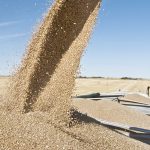Organic crop farmers may be missing out on a valuable source of data by not sampling and testing their soil for nutrients.
Tag Archives nutrients

Organic farms also need to use soil testing
Take a page from conventional farming and test for soil nutrients and benchmark progress, says Manitoba research tech

There is hope for eroded hilltops
Farmers have several options to consider when looking at ways to restore productivity on eroded hilltops
Restoring productivity can be a difficult challenge for farmers battling erosion on hilltops, but there are practical strategies to mitigate the problem and improve crop yields.

Poor yields start at the roots
WINNIPEG — The story of the 2024 canola crop can be summed up with three brief phrases: Hopes for a bumper crop in late June. Blazing heat and minimal rain in July. Disappointing yields in September. Those are the Coles Notes, but the agronomic story is slightly more complicated. A long stretch of 33 C […] Read more

A little less acid can boost crop nutrition
Altering soil pH may reduce fertilizer needs by reclaiming residual nutrients and increasing use efficiency
SASKATOON — With farmers in Western Canada facing another year of expensive crop inputs, a soil amendment that helps cut these costs by using what’s already there could be attractive. “We’ve been over-fertilizing for 50 years,” said Morgan Duggan, sales agronomist with NorStar Agriculture, which specializes in amendments to deal with pH, salinity, toxicity and […] Read more
Nutrient removal guidelines updated
The Prairie Nutrient Removal Calculator is built upon data collected in Western Canada from 2020-22.

Gene family stimulates longer wheat roots
Scientists at the University of California, Davis, have discovered that the right number of copies of a specific group of genes called OPRlll can stimulate longer wheat root growth, offering opportunities for farmers to grow healthier crops with greater yields, despite climate variables.





